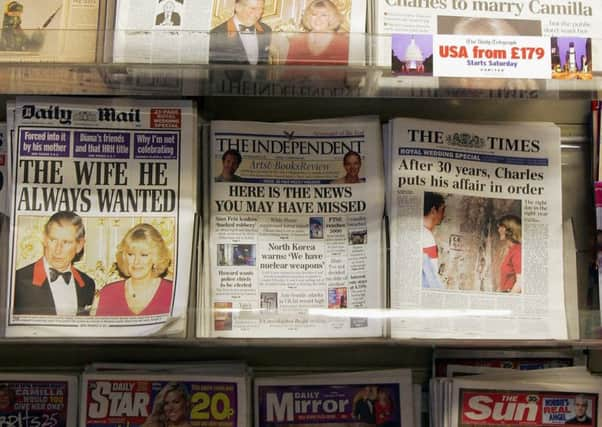Comment: Newspaper market must be fair and free


The downside of this is that we need good journalists to hold those in power to account and tell the public what they need to know. Good papers inform and entertain, and have a value much greater than the commercial value of the business. Whatever the platform, as a society we need to support good journalism locally and nationally. A (well-resourced) free press is a cornerstone of democracy.
Ownership can be another issue. With a few exceptions (such as the Guardian), newspapers are traditionally owned by powerful individuals or companies. As businesses, papers are expected to reward investment with profits. And the proprietors often endorse a particular outcome at election time. These aspects can be divisive and unhelpful if you take the core purpose of newspapers to be an important social service, bringing accountability to public and corporate life.
Advertisement
Hide AdAdvertisement
Hide AdIs there another way? For example, just as not-for-profit ownership and funding structures are increasingly popular in modern life (from Dunfermline Athletic FC to the Big Issue), could a similar model better support a newspaper? It seems possible that, if a newspaper (particularly a local newspaper) was seen primarily as having an important social value, then the readership or local residents (whether modest or wealthy) might, just might, be more willing to sustain it by subscription whether they read it regularly or not, on principle as it were. And commercial sponsors might, just might, be more attracted to such a positive model too.
There are very obvious challenges around such an approach. Those who already own our local and national newspapers, however profitable or otherwise, would want to be well rewarded for giving them up. Many already have significant debts attached. And it might turn out that subscribers and sponsors are not more willing to part with their hard earned cash at all. But it would be great to see someone try. Newspapers have too important a place in our lives to be gradually eroded by the all powerful internet.
• Jim Orr is an independent City of Edinburgh councillor